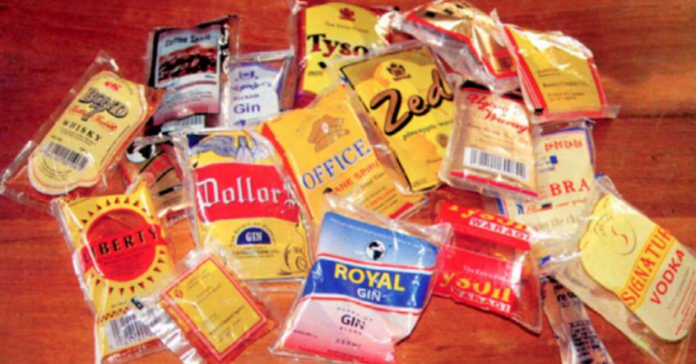More than two weeks after the ban on the importation, manufacture, distribution, sale, and use of alcoholic beverages in sachets and small bottles of 200ml and below, traders have continued to sell the products.
The Director-General of the National Agency for Food and Drug Administration and Control, Prof Mojisola Adeyeye had on February 5 in Abuja stated that as of January 31, 2024, there is no alcoholic beverage in those categories that are registered by the agency.
“I also want to inform you that the agency has started enforcement actions to enforce the implementation of this policy. The window period given to manufacturers by NAFDAC to sell off all alcoholic drinks in this category elapsed on January 31, 2024.
“To this end on the first day, after the expiration of the window period, the agency commenced nationwide enforcement actions on February 1, 2024, to enforce the implementation of the new policy,” she said.
If I stop selling what I’m selling, what will I sell? -trader
In January 2022, NAFDAC stopped the registration of alcoholic beverages in sachets and small volume PET and glass bottles below 200ml.
NAFDAC DG said the decision was based on the recommendation of a high-powered committee of the Federal Ministry of Health and the agency, the Federal Competition and Consumer Protection Commission, and the Industry represented by the Association of Food, Beverages and Tobacco Employers, Distillers and Blenders Association of Nigeria, in December 2018.
“As a result of the decision reached at the end of the committee meeting, producers of alcohol in sachets and small volume agreed to reduce the production by five per cent with effect from January 31, 2022, while ensuring the product is completely phased out in the country by January 31, 2024,” she disclosed.
NAFDAC needs to involve the state government to enforce the ban -Physician
The ban on alcoholic beverages in sachets had generated repeated protests by distillers and labour unions, who said the move would cost 500,000 workers their jobs, and ruin N800bn investments.
The Manufacturers Association of Nigeria countered claims by the NAFDAC that the recent implementation of the ban on sachet alcoholic drinks was a collective decision.
However, over two weeks after the enforcement of the ban, our correspondent who visited Lugbe, Area 1, Jabi, Airport junction, and Nyanya areas of the Federal Capital Territory found that traders were either unaware of the NAFDAC order or had decided to ignore it outright.
A trader at one of the bus stops in Nyanya said, “If I stop selling what I’m selling, what will I sell? I am a hardworking woman, and I don’t depend on anyone to feed me.”
Another herbal concoction hawker at the Federal Housing Authority area in Lugbe who identified herself as Adenike claimed, “Nobody told me to stop selling it with my agbo. I have not heard of, such.”
A consultant family physician at the University of Ilorin Teaching Hospital, Kwara State, Dr Ibrahim Kuranga-Suleiman, said NAFDAC needs to involve the state government to enforce the ban.
“It’s a war, and NAFDAC cannot do it alone. The state government needs to be involved for the ban to be effectively enforced,” he said.
Meanwhile, in January 2024, the World Health Organisation noted that when it comes to alcohol consumption, there is no safe amount that does not affect health.
“Alcohol is a toxic, psychoactive, and dependence-producing substance and has been classified as a Group 1 carcinogen by the International Agency for Research on Cancer decades ago – this is the highest risk group, which also includes asbestos, radiation, and tobacco.
“Alcohol causes at least seven types of cancer, including the most common cancer types, such as bowel cancer and female breast cancer. Ethanol (alcohol) causes cancer through biological mechanisms as the compound breaks down in the body, which means that any beverage containing alcohol, regardless of its price and quality, poses a risk of developing cancer,” the global health body stated.


